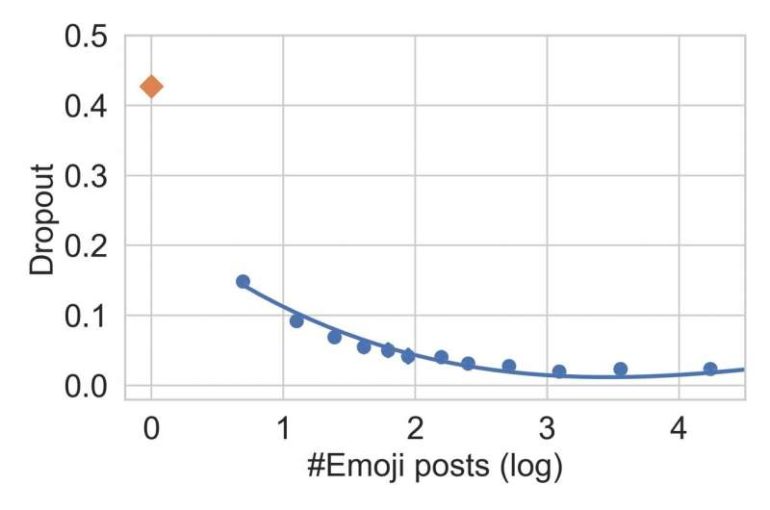The COVID-19 pandemic has led to a surge in professionals working remotely as a result of lockdown regulations or merely as a preventive measure. When professionals work remotely, however, it is far harder for employers to get a sense of their job satisfaction, wellbeing and mental health.
Researchers at University of Michigan, University of Maryland and Peking University have recently carried out a study exploring ways in which employers could predict the work-related behavioral patterns of remote workers and assess the risk that they will resign. In a paper pre-published on arXiv, they show that the ways in which developers use emojis on GitHub are correlated to a number of work-related behavioral patterns, including their levels of activity, the types of work they do, their communication styles, their time management skills and even the likelihood that they will drop out from GitHub.
“Working remotely makes it hard to track the emotions and mental health status of co-workers, which is a major challenge during the pandemic and in the future of work,” Xuan Lu, one of the researchers who carried out the study, told TechXplore. “We notice that despite the reduced face-to-face conversations, remote workers frequently use emojis in online work-related communications and they can be utilized as effective sensors for emotions at work.”
Lu and her colleagues analyzed 63 million GitHub posts written by approximately 10 million different developers. Interestingly, they found that 3-14% of these posts contained emojis, which varied depending on the type of communication developers were engaging in and the programming languages they used.
“With observations in the year 2018, we verified the correlation between emoji usage and a number of variables that characterize the working status of developers on GitHub,” Lu said. “After that, we built machine learning models that use a developer’s emoji usage in 2018 as features and predict whether they will drop out from GitHub usage in 2019. Their predictions achieve surprisingly good accuracy even though we only use emojis as features.”
The analyzes carried out by Lu and her colleagues showed that developers use emojis in a variety of ways. Moreover, the researchers found that their emoji usage patterns are correlated with the developers’ working status and with a number of work-related behavioral patterns.
In addition, using machine learning models, Lu and her colleagues demonstrated that the extent to which developers use emojis in their GitHub posts can predict the likelihood that they will stop using the platform. More specifically, their analyzes revealed that developers who used emojis in their posts were significantly less likely to drop out from GitHub.
“Our findings suggest that emoji usage is indicative of the risk of dropping out from online work platforms,” Lu said. “In fact, we found that developers who use emojis in their posts are significantly less likely to drop out from GitHub. Considering emoji usage as features alone, our off-the-shelf machine learning models could predict future dropouts of developers at a satisfactory accuracy.”
Overall, the study suggests that developers’ use of emojis, which inherently express emotions, might be a clue of their engagement in their work on GitHub, as those who used emojis were less likely to drop out of the platform. This finding could inform the development of tools that predict the work satisfaction of remote workers based on their use of emojis, or systems to detect signs of anger, anxiety and depression to offer support to employees who may be struggling to keep up with their work-related responsibilities. In addition, the work by Lu and her colleagues could inspire companies to devise strategies aimed at increasing the wellbeing and job satisfaction of remote workers, for instance by encouraging them to express both their positive and negative emotions using emojis.
“In our ongoing research, we are looking at the causality between emoji usage and work-related outcomes,” Lu said. “More specifically, we are now investigating if emojis could be used as an instrument to improve performance and retention of remote workers.”
Positive vibes only: Forego negative texts or risk being labelled a downer
More information:
Emojis predict dropouts of remote workers: an empirical study of emoji usage on GitHub. arXiv:2102.05737 [cs.LG]. arxiv.org/abs/2102.05737
2021 Science X Network
Citation:
Patterns in the use of emojis could predict the dropout of remote workers (2021, March 15)
retrieved 15 March 2021
from https://techxplore.com/news/2021-03-patterns-emojis-dropout-remote-workers.html
This document is subject to copyright. Apart from any fair dealing for the purpose of private study or research, no
part may be reproduced without the written permission. The content is provided for information purposes only.



